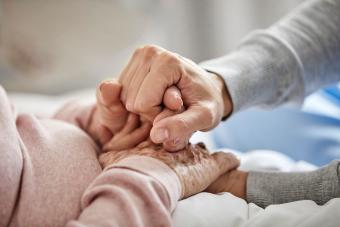
The importance of exercise for the elderly cannot be overstated. Regular doctor-approved exercise is a great way to live happily and improve senior health.
Physical Changes That Occur As We Age
As people age, there are some physical changes taking place. Skin changes to become thinner and less elastic and wrinkles appear in greater numbers. We may lose out hair or it can change to shades of gray or white. These are processes that everyone who lives a long life will go through naturally. Barring cosmetic changes, we can't control the aging of our looks much.
The good news is that we can control the aging of other body physical aspects such as posture and weight.
Other physical changes we face as we age include the following:
- Body weight is usually less in late adulthood because we lose muscle tissue.
- Muscle mass, along with muscle strength, is reduced, causing loss of strength in the legs, other parts of the body. In late adulthood the most apparent loss of strength is usually in the legs.
- Bone loss, or loss of bone calcium, occurs. This will cause changes in the body that are visible. Bone loss is responsible for some weight loss and possibly a stooped posture. A decrease in bone density or osteoporosis may also result.
- Other body functions slow down due to a loss of organ reserve.
The Importance of Exercise for the Elderly
Reducing the effects of physical changes due to aging is the major reason behind the importance of exercise for the elderly. Exercise is an important tool for improving a large part of the process. Research indicates that many factors can be improved with regular exercise. Benefits of regular exercise include:
- Increased exercise and activities promote well-being and a sense of feeling younger. Feeling younger and more self-confident has been shown to promote good psychological health.
- Exercise is often a social activity, which many experts believe contributes to a healthy state of mind and reduced depression. Exercising is a great way to spend time with friends either at the gym or on a walk at the park.
- The National Institutes of Health has research that indicates exercising helps people in late adulthood avoid disabilities that may be caused by chronic disease and other illnesses.
- Other studies show that exercise during late adulthood will help decrease the risk of diabetes and increase body function abilities.
Get Started With an Exercise Program
No matter what your age, if you want to begin exercising, the first place you need to stop is your doctor's office. As a senior, it can be even more important to have a physical exam before starting an exercise program. Also, some medication use is affected by exercise, which your doctor can talk with you about.
There are also other special considerations. For example, it's important to learn about stretch exercises for seniors because in late adulthood, it's best to have a long stretching period before your exercise time and a proper cool-down. The best way is to warm up the body with light cardio activity for five minutes, stretch for about five minutes, then begin your exercise routine.
After discussing your exercise options with your doctor, narrow down your exercise plan to ideas you'll be sure to use. Because of the importance of exercise for the elderly, choose an activity you'll actually do. If you get dizzy on an exercise bike, switch to something else. If walking is boring to you, try swimming or even walking with a buddy-pairing up can make any activity seem more like fun and less like exercise.
Additional Resources
- A local gym or elderly community center with an exercise room. Many have senior discounts.
- Your local park. City park programs often have exercise classes. If not, the park is still a wonderful place to get outside and move.
- Elderly Resistance Training. You don't need expensive weight equipment for this. Start with cans of soup, bottled water, and other household items with a little heft to them.
- Tai Chi for Seniors. This easy-movement activity can be performed alone with a DVD or video guide, or in a class setting.
- The National Institutes of Health has a website for the National Institute on Aging that offers an excellent senior exercise page with ideas, safety information, and more resources.







